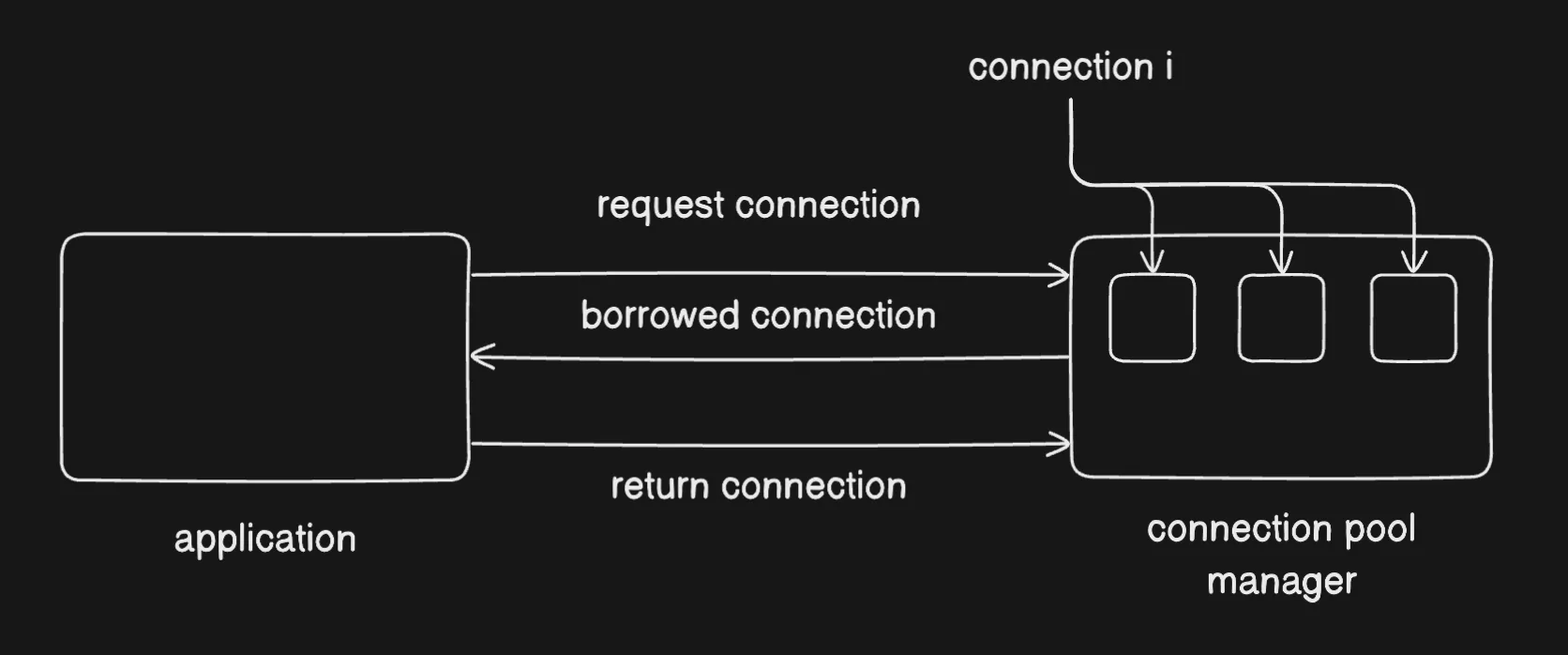connection pooling
it is a practice of maintaining a cache of reusable database connection, so instead of opening and closing connection repeatedly, we can reuse the existing ones only.
how connection pooling works?

-
initialization: a pool of database connections is created and maintained when the application starts
-
borrowing: whenever application needs a database connection for performing some operations, it borrows a connection from connection pool
-
returning: once the application is done with operations, it returns the borrowed connection back to the pool
key components
-
connection pool manager: it manages the lifecycle of connections including creation, borrowing, and returning
-
connections: actual database connections that are maintained in the pool
pros
-
reduces the time and resources needed to establish connections thereby increasing performance
-
limits the number of simultaneous database connections, preventing resource exhaustion
-
supports higher loads and improves application scalability
best practices
-
the pool size must be configured based on the application load and database capacity
-
the pool usage should be regularly monitored to identify and resolve bottlenecks
-
it should be ensured that the borrowed connections are returned to the pool to avoid leaks and resource exhaustion